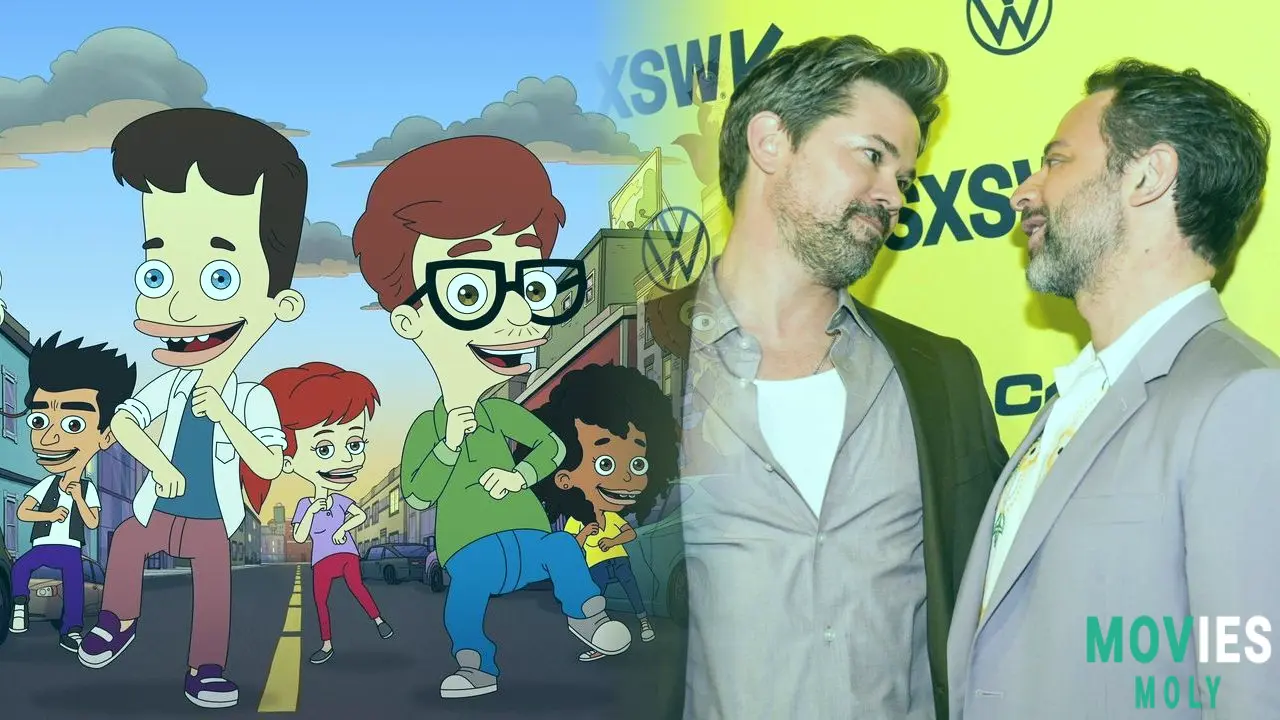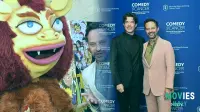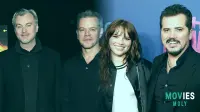Nick Kroll has made us laugh for years, and his hit cartoon series Big Mouth has ended after eight seasons on Netflix. Kroll, who co-created the program and voiced over 80 characters, had a lot to say about completing such a large production. According to Kroll, the last season evokes a range of emotions.
Rotten Tomatoes' Jacqueline Coley asked Kroll about this final scene. Kroll responded that he had mixed sentiments. "Obviously, I'm disappointed that it's finished because this is where the mixed parts are. It's been such a joy to work on this show for so many episodes with so many of my closest friends and folks I've admired for a long time. It has been a great joy, and it is sad that it is ended." He also thought the ending made sense given the show's direction. He feels it has always required to evolve and change, resulting in new ventures emerging from it.
Kroll and Andrew Goldberg came up with the idea for Big Mouth while reflecting on their own adolescence experiences. Kroll told Deadline that animating the show just made sense. "There was such a natural way to explore puberty, sexuality, human development inside of the genre of adult animation," he told me. He saw it as a means to share a personal tale without writing a direct autobiography. Kroll also explained how he ended up voicing so many characters. It was a logical fit, given his expertise in sketch comedy and character development. He was supposed to voice Nick, Lola, Coach Steve, and Maury the Hormone Monster from the beginning. But then Rick the Hormone Monster appeared, followed by the Jansen twins, and all these other voices. He even voiced a "dolphin-poodle hybrid."
The Influence of Big Mouth's Storytelling on Young and Old Audiences.How the creators worked to ensure that everyone felt less alone with puberty.
Kroll also discussed the unique vibe in the Big Mouth writers' room. Writers arrived knowing they would tell their own stories about puberty, middle and high school. This meant that the show expanded beyond Kroll and Goldberg's stories to include everyone's. Many of the authors who worked on season 8 had been there since season 1. Kroll stated that this was not something they took for granted. Many writers voiced characters on the show, both major and little. Kroll is really proud of the program and how it was created. He is also proud of those that worked alongside him to achieve success.
The team's experience was both pleasant and sad. Kroll mentioned that many of them married or had children during the show's run. Approximately six or seven children were born during the show. They genuinely spent a large portion of their lives together creating and developing the series. Kroll believes it was an extremely fulfilling experience, both creatively and emotionally.
When Big Mouth first began, the creators' main goal was to create a show that would make them laugh. They didn't fully anticipate children to watch it. However, as the show aired, they discovered that young teens and middle school students were definitely watching. The show's major purpose from the beginning and throughout was to make people feel less alone. Kroll explained that puberty can be very solitary. You feel like you're the only one going through this. You may believe that you are unable to discuss what is happening to you, regardless of how strange or nasty it feels. So the show attempted to make it normal. It demonstrates that everyone's experience includes these sensations, no matter how big or tiny. "It's all weird and it's all normal," Kroll said, expressing a major theme they sought to convey.
The crew also learned a lot by speaking with sex educators, authors, psychiatrists, therapists, and even real children. Every year, they would conduct interviews with students from the same school. They always sought to find out what stories the children wished to see. Near the conclusion, they even asked Instagram users about themes they hadn't explored yet. They created an entire episode based on requests for topics such as dry humping, vaginosis, vaginismus, and queef. These are frequently taboo subjects, but people wanted them addressed. Kroll claimed they took what they were saying sincerely and honestly. They were aware that it had to be hilarious in order to be effective.
Nick Kroll's Brave Steps To Assist Friend John Mulaney During A Difficult Time
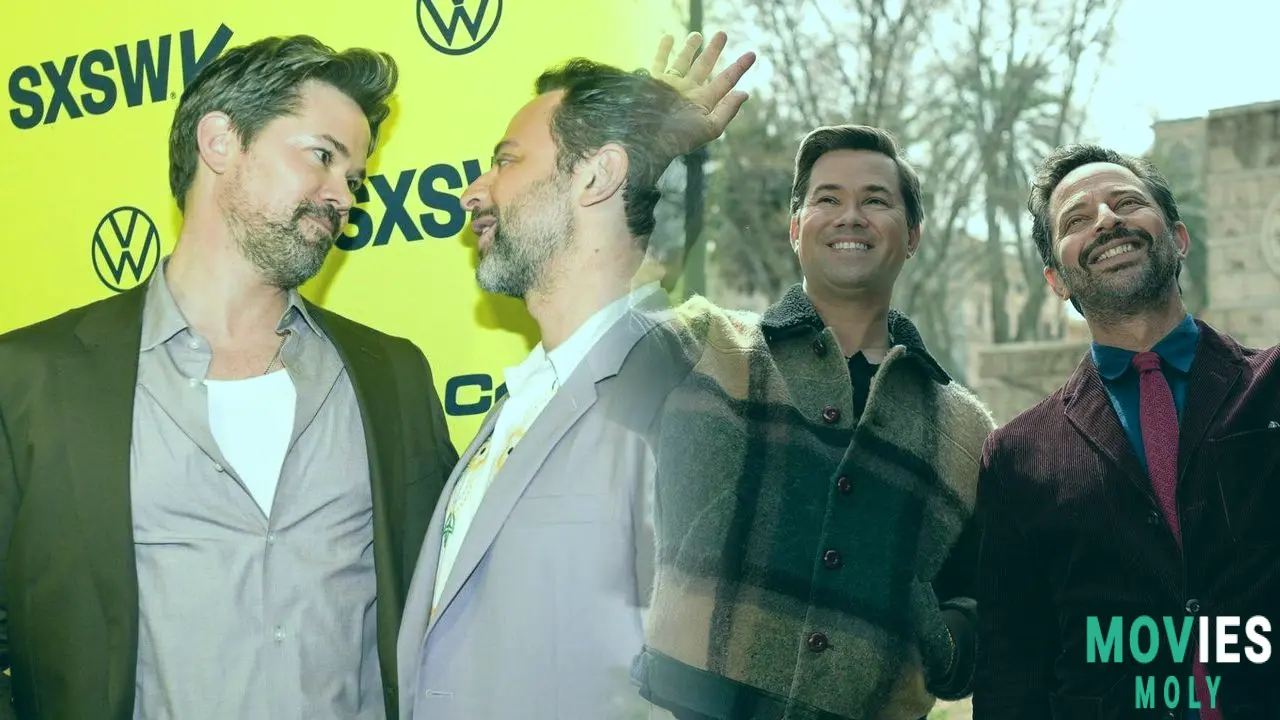
The Emotional Journey of Coordinating a Drug Intervention During the Pandemic
Beyond his comedy, Kroll recently opened out about a very serious and emotional event. He discussed organizing a drug intervention for his close friend and regular professional partner, John Mulaney, around 2020. This occurred at the height of the Covid-19 outbreak, adding to the stress of the situation. "It was so scary and brutal to go through," Kroll told the "Armchair Expert" program. He was in Los Angeles, while Mulaney was in New York. It was extremely stressful to plan an intervention including college friends and other close pals.
Kroll's wife was about to give birth to their child, which added to the stress. He was also filming Olivia Wilde's picture Don't Worry Darling, which had its fair share of public turmoil. Kroll laughed about the absence of tension there before admitting, "John was running around New York City like a true madman." And I was terrified that he'd die. Kroll characterized the intervention procedure as a true test of friendship. It blurred lines and forced painful facts to emerge. He understood why Mulaney had been a "inconsistent friend" for a long. Mulaney had been lying, so this brought understanding as well as a lot of fury.
Kroll vividly recalls a rough phone discussion with Mulaney just days before the intervention. He was outside his residence during the pandemic. He sat on the ground, crying, while talking on the phone with Mulaney. Kroll said to Mulaney, "I'm so scared you're going to die." Kroll could tell Mulaney was feeling the same way. Mulaney responded, "Yeah, yeah, yeah…anyway, I gotta go." I am at a new Airbnb." The well-known intervention occurred in New York City. Mulaney's buddies, including Kroll and Seth Meyers, persuaded him to attend by pretending it was a college friend's dinner. Mulaney later admitted to taking Adderall, Xanax, Klonopin, Percocet, and cocaine. He went right from the intervention to treatment and stayed for two months.
Kroll confessed that the event did not provide immediate tranquility, even after recovery. "When he started doing stand-up again, and it was all about the intervention, he was still really angry off. He came back clean, but he was angry with us. And I was like, 'Oh…I don't know if I appreciate that joke about me.'" Nonetheless, Kroll realizes that artists deal with sorrow in their own unique ways. He went on to say that Mulaney's sense of humour and powerful stage presence stem from his written life story. Kroll is a more private person. Kroll feels that individuals do not hear enough from their friends who are afraid in such situations. He stated, "Addicts speak about their experiences in dazzling, stand-up-ready ways. However, there are those people in their lives who are simply attempting to keep them alive. That's part of the plot as well." Kroll and Mulaney have been working together for more than ten years. Their friendship, formed via comedy, weathered a crisis and endured. Kroll simply said, "I just didn't want to lose him."
Nick Kroll's Other Creative Pursuits: Sketch Comedy to Unsettling Films
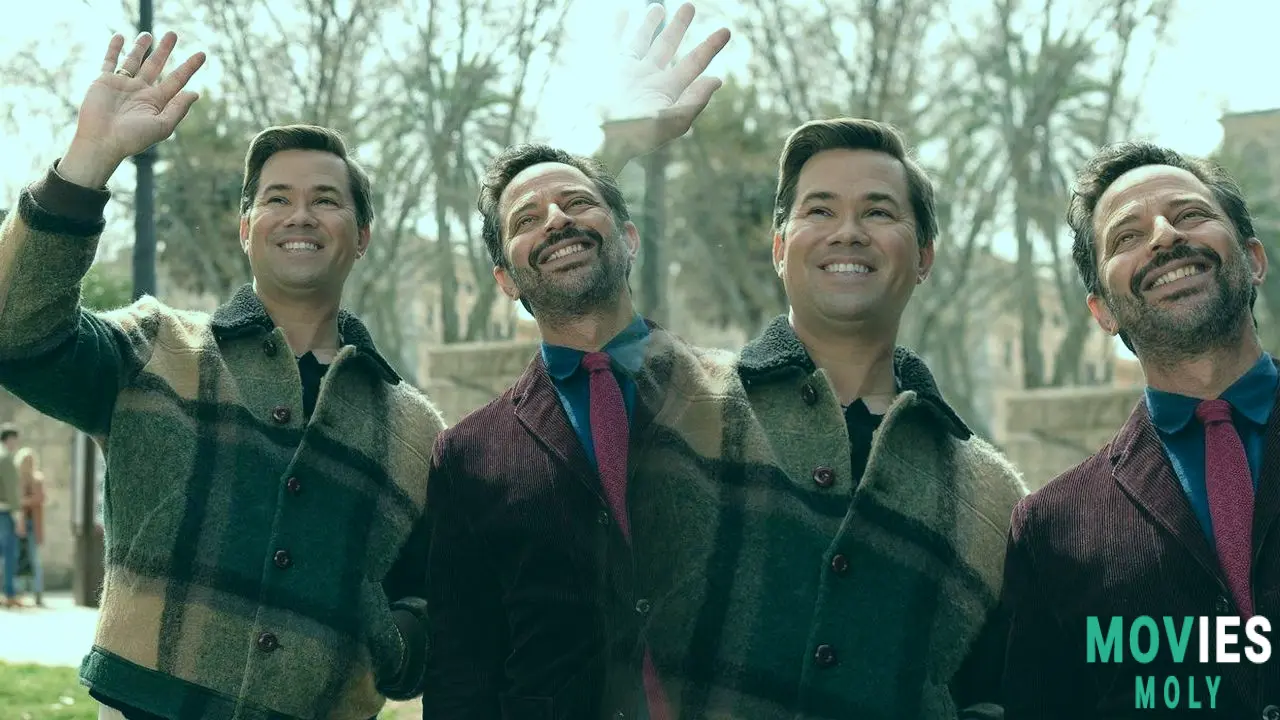
A Look At His Diverse Work Aside From Big Mouth and Personal Revelations
Prior to Big Mouth, Kroll was known for his sketch show, Kroll Show. This series drew the attention of filmmaker Jeff Nichols. This year, Kroll will release a number of projects that showcase his diverse body of work. He recently worked on the horror-comedy I Don't Understand You. This film, featuring Kroll and Andrew Rannells, takes a rather unexpected turn.
The film begins with Dom (Nick Kroll) and Cole (Andrew Rannells) as a loving couple attempting to adopt a child. They appear likable, and we root for them. But then they travel to Italy for their anniversary. A succession of misunderstandings and missteps leads to the death of an elderly woman. This is not an original comic concept, but the film fails to deliver. It is supposed to be a horror-comedy, but it is neither frightening nor amusing. It's a curious combination of these ideas, diluted within what feels like a love story. When it attempts to be hilarious or scary, it simply feels out of place and awkward.
The film becomes unexpectedly gloomy at moments, not in a hilarious way, but in a way that makes you wonder, "Wait, wasn't this supposed to be a funny movie?!" The tone is inconsistent. The film was written and directed by two Americans. This makes me believe the film implies that Americans cannot be trusted in foreign countries. They ruin everything by failing to adapt to different cultures. Kroll and Andrew Rannells portray characters that grow into murderous psychopaths. This is an unusual choice that never feels appropriate for the type of film it attempts to be. While the real-life couple who wrote and directed it certainly cared deeply about the adoption tale, the main characters' choices make it difficult to appreciate them by the end.
The film simply goes past these awful happenings. Dom and Cole return home without any penalties. A scene after the credits depicts the impact of their acts on the Italian villagers. This is where the characters' dislike for each other becomes most apparent. It's not humorous that an innocent man gets framed for murder so that a wealthy Los Angeles couple can have their child. Overall, the film was disappointing. It lacked recognizable characters, substance, fear, and comedy. It turned out to be a difficult and complicated tale in which good people are mistreated while those who cause trouble thrive as long as they are wealthy enough to avoid the cops.

